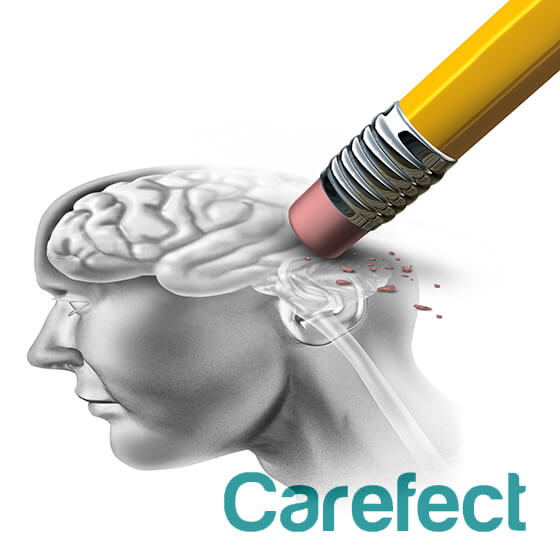Due to the complexity of the cognitive effects of Alzheimer’s disease, it is a condition that can be challenging to document and assess accurately. Since many medical conditions mimic Alzheimer’s disease, it can present an issue for families and caregivers who are trying to document and gather evidence for their primary family physician. The mimicry of these conditions is due to their relationship with the brain, and the complexity of brain-related injuries and conditions. The following are examples of medical conditions and injuries that can seem like Alzheimer’s disease.
Delirium
Delirium is predominantly displayed as confused thinking, disjointed communication and reduced awareness of the environment. Its effects come on rapidly and are often seen after a medical or surgical event, a toxic dosage of a drug or an incorrect combination of medications. Severe mood shifts are also a byproduct of delirium and can look like shifting between alertness and sleepiness as well as an increase in agitation. In more severe cases there can be visual or auditory hallucinations and even psychotic delusions. Fortunately, delirium can be reversed once the cause is diagnosed and met with treatment.
Head Trauma
Injuries, especially head injuries, are a significant risk factor resulting in trauma to the brain. Even minor injuries, like a fall that may not seem serious, can result in significant cognitive issues. If it results in a concussion, the symptoms will usually improve with time and treatment. However, if there is a post-traumatic bleed inside of the skull, it can interfere with cognitive functioning. This can result in symptoms that can mimic other conditions including Alzheimer’s disease.
Vision and Hearing Impairment
Sensory impairments can look like cognitive limitations if not promptly treated. These symptoms can worsen if the affected person is not receiving adequate care and becomes increasingly isolated as a result of those sensory limitations. This is especially true for elderly adults as the relationship between hearing loss and the decline of cognitive functioning is interrelated.
Cardiovascular System Disorders
The cardiovascular system provides the brain with the oxygen and nutrients necessary to support the body’s functioning. Ageing can affect organs like the heart and the lung when it is accompanied by a vascular disease that interferes with blood vessel and cardiac output, in addition to a lung disease that minimizes the delivery of oxygen to the brain. Both of these cardiovascular diseases can create vascular dementia and affect mental alertness, memory and executive function.
Excretory System Disorders
The excretory system performs the function of excretion which is the body’s process of discharging waste. Therefore, diseases of the kidney and liver can result in the accumulation of toxic waste products in the body which can lead to a decrease in mental activity and clarity.
Endocrine System Imbalance
Endocrine organs such as the thyroid are responsible for the creation of hormones that control many metabolic activities and are transported through the bloodstream. A hormone imbalance can lead to a disturbance in regulating the effects of insulin and harm bodily functions, including brain activity.
Infections and Cancer
Infections and high fevers can drastically alter brain functioning and prolong a mental decline in a way that is similar to dementia. Cancer can also lead to a mental decline due to the local effects of a tumor which could be compressing brain tissue or as a result of the tumor effect on the immune system similar to an infection. If there is a tumor in the brain, the antibodies may work against the brain and unfortunately produce paraneoplastic syndrome.
The Importance of Doctor Diagnosis
Thankfully, the majority of these medical conditions are entirely treatable and, in some cases, curable. Therefore, when assessing Alzheimer’s disease, it is important to document medical history, recent medical events, medication, and an ongoing behavioral overview to ensure that it is not another condition that is mimicking Alzheimer’s disease. Your primary care physician will conduct an appropriate examination that includes blood tests, urine samples, and a mental and emotional check-in. Consult your doctor if you are having any concerns about Alzheimer’s disease-like traits or want a closer look into a previous diagnosis.
We also recommend you check these related posts on family caregivers in our Home Care Services blog:

